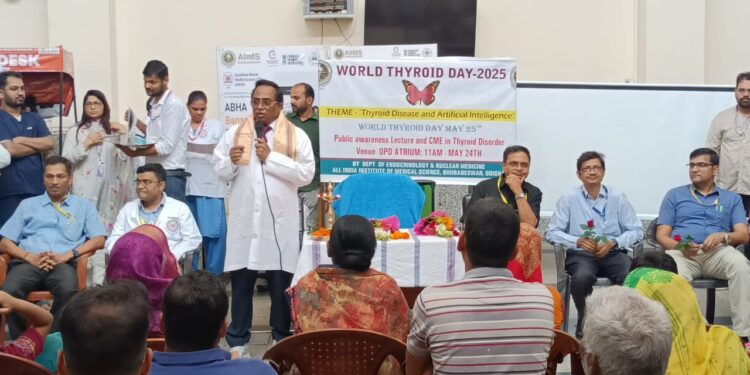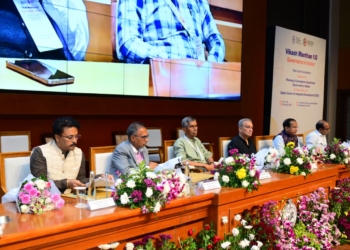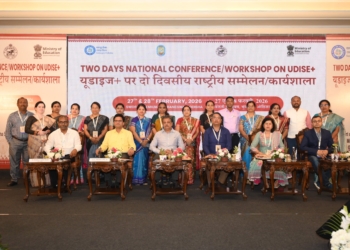Artificial Intelligence (AI) is poised to revolutionize the early diagnosis and management of thyroid disorders in India, according to Dr. Ashutosh Biswas, Executive Director of AIIMS Bhubaneswar.
Speaking on the occasion of World Thyroid Day (May 25), Dr. Biswas emphasised the increasing role of AI in personalised medicine, particularly for hypothyroidism, which affects approximately 1 in 10 adults in the country. “AI will aid in early diagnosis, track disease progression, and support outcome-based treatment, especially benefiting patients in rural and underserved areas,” said Dr. Biswas.
Hypothyroidism is three times more prevalent in women than in men, and around 33% of patients remain undiagnosed. If left untreated, hypothyroidism can negatively affect major organs, including the heart, brain, kidneys, liver, intestines, and the reproductive system. In children and infants, it can result in stunted growth, obesity, developmental delays, and poor academic performance, Dr. Biswas added.
The Department of Endocrinology, Diabetes & Metabolism at AIIMS Bhubaneswar treats over 500 patients monthly with thyroid-related conditions. The department offers comprehensive care for congenital and autoimmune hypothyroidism, Graves’ disease, benign thyroid swellings, and thyroid malignancies. Dr. Kishore Kumar Behera, Head of the Department, highlighted a multi-disciplinary approach that includes biochemical investigations (TSH, free T4, free T3), high-resolution ultrasound, CT scans, and nuclear imaging (whole-body iodine scan, Technetium pertechnetate scan). The department also provides osteoporosis and sarcopenia screening using dual X-ray absorptiometry, along with clinical dietary services for personalised nutritional care.
To celebrate World Thyroid Day, the Departments of Endocrinology and Nuclear Medicine at AIIMS Bhubaneswar conducted an awareness program. Speakers, including Medical Superintendent Dr. Dillip Kumar Parida and Dr. Kanhaiyalal Agrawal, informed the public about the importance of early detection of thyroid diseases and the emerging role of AI in this area.
Affected infants and children may experience stunted growth, obesity, developmental delays, poor academic performance, constipation, pubertal disorders, and other conditions. Patients of reproductive age may present with infertility, menstrual irregularities, lethargy, confusion, hypertension, and weight gain. Elderly patients can suffer from dry skin, fatigue, constipation, heart failure, obesity, and hypertension. Early diagnosis and treatment can prevent severe complications such as myxedema coma, pericardial effusion, heart failure, and even death.






























